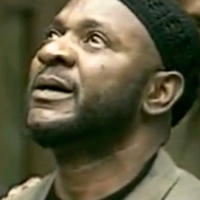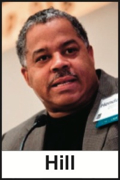Rascals case in brief
In the beginning, in 1989, more than 90 children at the Little Rascals Day Care Center in Edenton, North Carolina, accused a total of 20 adults with 429 instances of sexual abuse over a three-year period. It may have all begun with one parent’s complaint about punishment given her child.
Among the alleged perpetrators: the sheriff and mayor. But prosecutors would charge only Robin Byrum, Darlene Harris, Elizabeth “Betsy” Kelly, Robert “Bob” Kelly, Willard Scott Privott, Shelley Stone and Dawn Wilson – the Edenton 7.
Along with sodomy and beatings, allegations included a baby killed with a handgun, a child being hung upside down from a tree and being set on fire and countless other fantastic incidents involving spaceships, hot air balloons, pirate ships and trained sharks.
By the time prosecutors dropped the last charges in 1997, Little Rascals had become North Carolina’s longest and most costly criminal trial. Prosecutors kept defendants jailed in hopes at least one would turn against their supposed co-conspirators. Remarkably, none did. Another shameful record: Five defendants had to wait longer to face their accusers in court than anyone else in North Carolina history.
Between 1991 and 1997, Ofra Bikel produced three extraordinary episodes on the Little Rascals case for the PBS series “Frontline.” Although “Innocence Lost” did not deter prosecutors, it exposed their tactics and fostered nationwide skepticism and dismay.
With each passing year, the absurdity of the Little Rascals charges has become more obvious. But no admission of error has ever come from prosecutors, police, interviewers or parents. This site is devoted to the issues raised by this case.
On Facebook
Click for earlier Facebook posts archived on this site
Click to go to
Today’s random selection from the Little Rascals Day Care archives….
Click for earlier Facebook posts archived on this site
Click to go to
Today’s random selection from the Little Rascals Day Care archives….
Could we resolve to better next year?
 Dec. 28, 2013
Dec. 28, 2013
End-of-year grab bag from the wide world of justice delayed:
● Thanks to Professor P. S. Ruckman Jr. at Pardon Power for posting my comments on Andrew Junior Chandler.
● Two glimmers of light on misrepresented “genital scarring” and other examples of junk science – from Texas of all places!
● In New York a remorseful former judge testifies against his own verdict.
● Recently uploaded onto Vimeo by the Alfred I. duPont Awards: a three-minute, full-screen excerpt from “Innocence Lost”. (The complete series can be viewed from the “Innocence Lost” page of this website in small-screen format.)
● Gov. McCrory proves himself able to dispense clemency to LaMonte Armstrong – can he find it in his heart to be similarly just to the no less innocent Junior Chandler?
The last trial of Darryl Hunt

imdb.com
Darryl Hunt
March 17, 2016
The award-winning documentary “The Trials of Darryl Hunt” was released in 2006, but of course Hunt’s world-famous exoneration only freed him to face new trials on the outside – most recently divorce and cancer.
Winston-Salem police Wednesday attributed his death to suicide by gunshot.
Amazingly, Darryl Hunt overcame the unspeakable damage done by 19 years of wrongful imprisonment to build a life of righteous achievement. I’m choosing to remember his journey, not its end.
![]()
When ‘overwhelming community sentiment’ wins
 June 10, 2013
June 10, 2013
“The danger posed by courts and prosecutors who abdicate their responsibilities to uphold the Constitution in favor of overwhelming community sentiment was recently illustrated in State v. Robert Fulton Kelly Jr.
“The trial prosecutor and the Superior Court judge were so overwhelmed by community sentiment that the trial was converted from a proceeding to adjudicate Mr. Kelly’s guilt or innocence into a forum to assist the families of the scores of alleged child victims recover from the gut-wrenching allegations of the 100-count indictment. The result: Justice was poorly served.
“The individuals thought to be victims and their many family members, loved ones and neighbors were frustrated, angered and in the end felt cheated. The individuals accused of heinous abuse of scores of children were deprived of a fair trial and deprived of liberty for more than three years.”
– From a talk by Henderson Hill, director of the N.C. Resource Center, Office of the Appellate Defender, at the Senator Sam J. Ervin Jr. Constitutional Issues Program, (May 18, 1995)
‘Satanic ritual abuse’ loses its place in textbook
 April 26, 2013
April 26, 2013
By 1997, when the college textbook “Family Violence Across the Lifespan” was first published, the most grievous excesses of the day-care ritual-abuse panic had passed (although it would be two more years before Little Rascals prosecutors dropped a final, unrelated charge against Bob Kelly).
The authors, social scientists at Pepperdine University, devoted entire sections to “Do Children Fabricate Reports of Child Sexual Abuse?” and “The Satanic Ritual Abuse Controversy.” More on those issues here.
Their approach is thoughtfully skeptical, but they can’t quite bring themselves to call baloney on those peers whose ill-conceived claims ginned up the “controversy” or whose gullibility prolonged it. For example:
“If there is so little evidence confirming the existence of SRA, why do so many perceive the SRA threat to be real? One reason is that… therapists, police officers and child protection authorities, who are often required to attend seminars on current developments in their field, are exposed to SRA ‘experts’…. These seminars tend to employ proselytizing techniques characteristic of organizations seeking recruits. Many well-meaning helping professionals, who are generally motivated by the desire to help abused clients, become convinced of the existence of SRA through these seminars (such as the one at Kill Devil Hills)….”
“Family Violence…” has proved popular enough to justify a third edition (2011), in which all mention of ritual abuse has been removed.
I asked sociologist Robin D. Perrin, one of the authors, to trace his thinking on the subject between editions.
“I suppose one could argue that the ‘Satanic Ritual Abuse’ issue is a bit dated at this point,” he replied, “as the Satanism scare has mostly faded into the sunset. But it is still a fascinating page in history, if nothing else….
“As for our approach on these issues, I think ‘thoughtfully skeptical’ is probably fair. You are correct that we fall far short of an outright denial of the validity of all ritual abuse claims. I am quite certain we are not in position to do that. In fact, given the history of mistreatment of children (both ‘then’ and ‘now’) I have no doubt that ‘ritual’ abuse has occurred (depending on how it is defined, of course).”











0 CommentsComment on Facebook